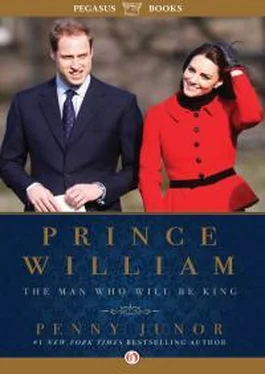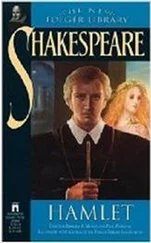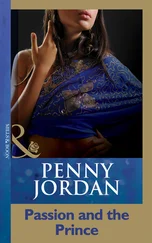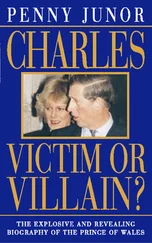Today there are refuges for women who are victims of domestic violence and the subject is often spoken about, but even today those women, even if they do seek help, often choose to stay with their abuser, believing that in some way they are to blame. In 1960, there was no help to be had and no real understanding of the scale or severity of the problem. Had she been able to confide in anyone, they would probably not have believed her; not have believed that such a thing was possible in a man so well bred and so well connected.
So Frances continued to live with Johnny and to keep trying for the boy that she knew he so desperately wanted.
Later that year she became pregnant again, and on Saturday 1 July 1961, Diana was born at Park House. She weighed 7 lb 12 oz and was hailed by her father as ‘a perfect physical specimen’. She was christened at Sandringham church and was, ironically, the only Spencer child not to have a royal godparent.
In May 1964, the long-awaited boy arrived. The relief and excitement were palpable, and at Althorp flags flew in celebration. Charles was christened in grand style in Westminster Abbey, with the Queen a godmother.
Diana was not quite three when Charles was born. She was a happy little girl, secure in the cosy routine of nursery life. But in later years, she looked back and convinced herself that her own birth had been nothing but an inconvenience. Her parents had longed for a boy; ergo, she was unwanted. It was a belief that ate away at her and which she could find no reason to refute.
Life at Park House was typical for a family of their social standing. There were fewer staff now, but they knew their boundaries and the cook would no more change a nappy nor the nanny boil an egg than they would step uninvited beyond the swing door that separated staff from family.
The children lived in the nursery wing consisting of three bedrooms, a bathroom and a large nursery, all on the first floor. Their upbringing was very traditional and as a result they were scrupulously polite and well mannered. A governess came to teach them every morning and in the afternoons they went for a walk in the park or to tea with the children of neighbouring families or shopping in the nearby village with their mother.
There were bicycles and a pony called Romany and their birthdays were always celebrated with parties for their friends; and the Spencer fireworks display on 5 November was a great event in the social calendar. All the local children came and Johnny, as master of ceremonies, let off an arsenal of rockets, whizzers, bangers and squibs, while everyone warmed themselves with sausages around the bonfire.
Kept busy in this way, on the surface the family appeared united, and the children might not have noticed the unhappiness that prevailed beyond the swing door. It must have been a great shock when their mother told them she was leaving home in the autumn of 1967. She explained why but she feared that only the elder children, Sarah and Jane, who had just started boarding school, understood. She had fallen in love with another man, Peter Shand Kydd, and grasped the opportunity to escape her loveless marriage.
Johnny was also shocked. He was possibly the last person to see it coming, but the staff, who heard the ferocious rows, were not surprised and none of them condemned her – indeed one of the housemaids went with her to London as a cook. Condemnation came from the one person Frances might have looked to for support; her own mother, Ruth. She was a snob and was so appalled that her daughter should leave the son of an earl for a man ‘in trade’ – albeit a millionaire – that the pair didn’t speak to each other for years.
Initially, Frances took the younger children and their nanny to live with her in London, and she had every expectation that when her divorce came through she would keep them all. But things didn’t go according to plan.
Peter Shand Kydd was also married with children and his wife soon divorced him for adultery, naming Frances as the other woman. Frances then began proceedings against Johnny on the grounds of cruelty, which he contested and was able to bring as witnesses some of the highest names in the land. Her case collapsed and he divorced her for adultery. In the bitter custody proceedings that followed, Ruth gave evidence against her daughter, claiming Frances was a bad mother. Custody of all four children went to Johnny. Frances was allowed to see them only on specified weekends and for part of the school holidays. She must have been grief-stricken.
Diana, just six when her mother left, was far too young to understand the complexities of the adult world. In her mind the matter was simple: her mother didn’t want her, therefore she must be worthless.
‘It was a very unhappy childhood,’ she told Andrew Morton, the author to whom she famously unburdened herself when her own marriage was falling apart. ‘Always seeing my mother crying … I remember Mummy crying an awful lot and … when we went up for weekends, every Saturday night, standard procedure, she would start crying. “What’s the matter, Mummy?” “Oh, I don’t want you to leave tomorrow.”’
Another early memory was hearing Charles sobbing in his bed, crying for their mother. She told Morton that she began to think she was a nuisance and then worked out that because she was born after her dead brother, she must have been a huge disappointment to her parents. ‘Both were crazy to have a son and heir and there comes a third daughter. “What a bore, we’re going to have to try again.” I’ve recognised that now. I’ve been aware of it and now I recognise it and that’s fine. I accept it.’
She learned to accept all kinds of difficult emotions. Shortly before Diana’s fourteenth birthday, her grandfather, the 7th Earl, died and the family was uprooted from Norfolk. She had to leave the comforts of Park House, her friends and everything she had grown up with for the impersonal grandeur and loneliness of a stately home in Northamptonshire, a county nearly a hundred miles away. With the new house came a formidable stepmother. Her father’s marriage in 1976 to Raine, Countess of Dartmouth, the forceful daughter of the romantic novelist Dame Barbara Cartland, caused terrible upset in the family. None of his children liked her and they resented the way she took over Althorp, reorganised it and starting selling off its treasures.
Three years later her father collapsed in the estate office at Althorp with a massive cerebral haemorrhage that no one expected him to survive. He lay in a coma for four months, while his children awaited the news they dreaded. Just as he was beginning to pull through he developed an abscess on the lung and was again close to death. He was saved by a new drug that Raine discovered in Germany. The Spencer children all acknowledged that she had saved their father’s life, but her conduct did nothing to endear her to them. She guarded him like a hawk during those months in hospital and gave instructions that no one, not even his children, was allowed to see him.
That June evening in 1982, while the first photographs of the day-old Baby Wales were being broadcast on television and the morning newspapers were building their front pages around him, Charles and Diana went home to Kensington Palace full of hope that a baby would work its magic and bring them closer together.
Their marriage was not yet a year old but already there were serious problems that must have been as distressing as they were apparently insoluble. Within days of announcing their engagement, the Diana who had captivated the Prince of Wales had changed from a happy-go-lucky teenager into a volatile and unpredictable stranger. Charles was mystified and had no idea how to deal with it. The engagement had happened far too early in the relationship – after only a few months – and well before either of them could know whether they were making the right choice. When asked in their televised engagement interview whether they were in love, he had famously and agonisingly said, ‘Whatever in love means,’ while she, quick as a flash, said, ‘Of course!’
Читать дальше












